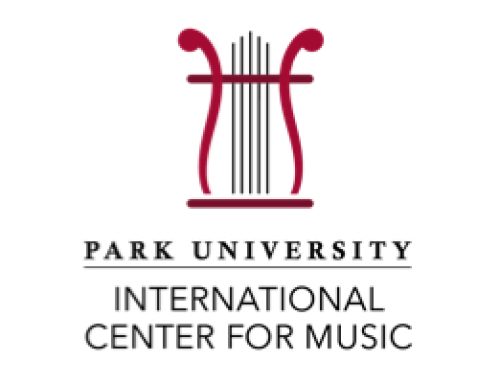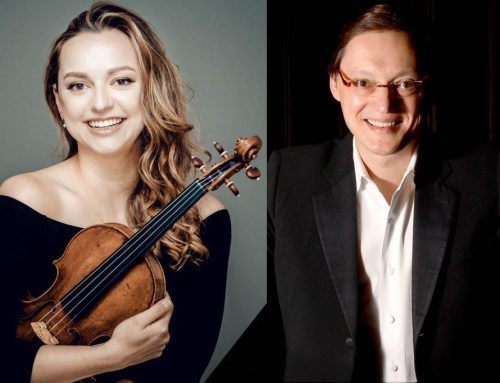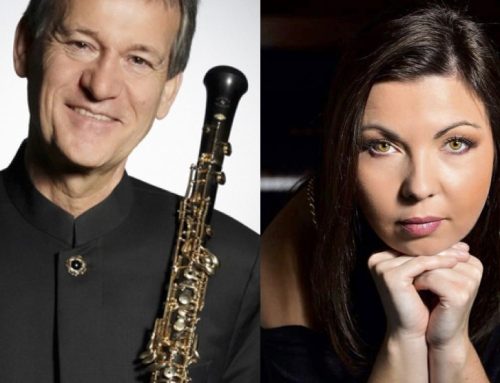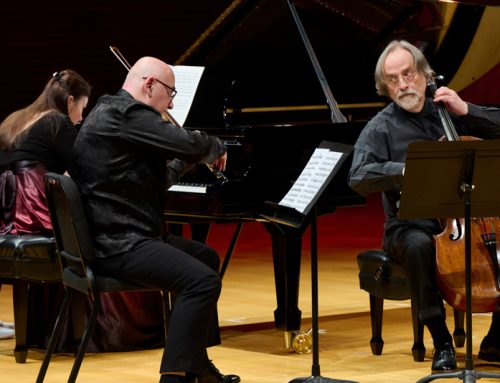Monday, April 9
6:00 p.m.
Jenkin and Barbara David Theater, Alumni Hall, Parkville University Campus
Schedule For the Evening
6:00 p.m. – Roger Kugler introduces Ben Sayevich and Evangeliya Delizonas-Khukhua
6:02 p.m. – Music Program
“Nigun” from Suite from “Baal-Shem: Three Pictures of Hassidic Life” by Ernest Bloch (1880-1959)
“Schindler’s List” for Violin and Piano by John Williams (b. 1932)
Ben Sayevich, violin and, Evangeliya Delizonas-Khukhua, piano
6:17 p.m. – Eric Bergrud introduces movie
7:47 p.m. – Conclusion of movie followed by panel discussion
About “Big Sonia”
Sonia Warshawski is one of the last remaining Holocaust survivors living in the Kansas City area, and one of the only survivors who speaks publicly about her wartime experience. Sonia’s enormous personality and fragile 4-foot-8-inch frame mask the horrors she endured.
On Monday, April 9, Park University will host a program that will include a screening of Warshawski’s story, “Big Sonia,” a live music performance and a panel discussion starting at 6 p.m. in the Jenkin and Barbara David Theater inside Alumni Hall on the University’s Parkville Campus. Admission to the event, a part of Park’s 2017-18 Year of Diversity series of events, is free and open to the public. To ensure seating, registration is requested at park.edu/bigsonia.
The event will begin with a short performance by the Park University International Center for Music’s Ben Sayevich, professor of music/violin, and ICM graduate student Evangeliya Delizonas-KhuKhua, piano. The duo will perform “Nigun” from the suite “Baal-Shem: Three Pictures of Chassidic Life” composed by Ernest Bloch and “Schindler’s List for Violin and Piano” composed by John Williams. The film screening will begin at approximately 6:15 p.m. and will be followed by a panel discussion at approximately 7:45 p.m. Panelists will include: Rabbi Doug Alpert from Congregation Kol Ami in Kansas City, Mo.; Brian Cowley, Ph.D., Park University professor of psychology who has expertise in the Holocaust; and Jennifer Tavernaro, an educational adviser on the film who has been teaching Holocaust education and Warshawski’s story for the past 10 years in her classroom at Lakewood Middle School in the Blue Valley (Kan.) School District. Tavernaro’s students are highlighted in the film.
At 15, Warshawski watched her mother disappear behind gas chamber doors, and her teenage years were a blur of concentration camps and death marches. On liberation day, she was accidentally shot through the chest, yet miraculously survived. Warshawski is the ultimate survivor — a bridge between cultures and generations.
The film, produced and co-directed by Warshawski’s granddaughter, Leah Warshawski, and co-directed by Todd Soliday, interweaves Sonia’s past and present using first-person narrative with stories from family and friends. Along the way, valuable life lessons, known as “Soniaisms,” are presented from a woman who can barely see over the steering wheel, yet insists on driving herself to work every day to run her late husband’s tailor shop. Running the shop is Sonia’s entire being — it is her reason for living and the center of her life. Sonia is a “diva” and is known for wearing leopard print and high heel shoes. Her influence spans generations and cultures, and the film shows how she transforms a room of self-involved teenagers into thoughtful citizens.
“Big Sonia” has won 18 awards, most recently the Grand Jury Prize for Best Documentary at the Barcelona International Film Festival and the Best Film Grand Prize at the Cleveland International Film Festival, both in 2017. In the Kansas City region, it was named the Best Heartland Documentary at the Kansas City Film Festival and Best Local Film by Movie Trip Cinema, and won the Audience Award for Best Documentary at the Tallgrass Film Festival, all in 2017.
The screening takes place two days before Yom HaShoah, also known as Holocaust Remembrance Day, which commemorates the lives and heroism of Jewish people who died in the Holocaust. The event is presented in partnership with the International Relations Council, Midwest Center for Holocaust Education and National Archives at Kansas City.
About the Music
“Nigun” from Suite from “Baal-Shem: Three Pictures of Hassidic Life” by Ernest Bloch (1880-1959)
The “Baal-Shem” Suite is composed of three miniatures based on Hassidic subjects. Originally written in 1923, the year in which he procured American citizenship. One year later, Bloch transcribed one of the movements “Nigun” (I Believe) for violin and piano. This is deeply felt, highly reverent music – an emotional confession of faith. The expressive quality of the violin enhances the composer’s strongly Judaic idiom.

